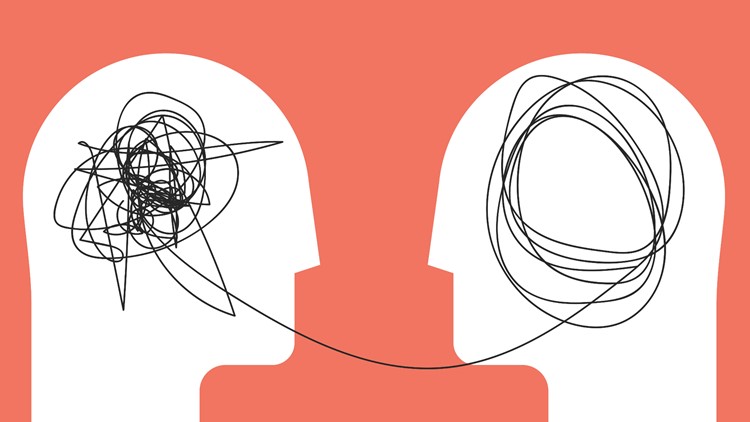ST. LOUIS — Therapists often get calls from couples seeking couple counseling and anger management services for the abuser in the relationship. Their thinking is if the aggressor could learn to communicate better or control his or her anger in response to the survivor’s [fill in the blank], the abuse would stop. It does not. The aggressor’s anger in response to the survivor’s [fill in the blank] is not the problem.
The abuser’s coercive control is the problem. Abuse ends when the aggressor changes his/her thinking and stops abusive behavior, which includes physical violence, and injuries in the form of emotional, verbal and psychological abuse; financial and spiritual control; sexual coercion; rape; stalking and homicide.
Intimate partner violence (IPV) inclusive of domestic and sexual violence occurs across all cultures, religions, age and socioeconomic groups, regardless of sexual identity or preference.
When men abuse women, it is more severe. When IPV is ongoing, men who hit their partners, hit her repeatedly over many years while progressively isolating her.
According to data analyzed by the Violence Policy Center, Missouri consistently ranks amongst the top states for domestic killings. In 2019, the last year when comprehensive data was available, Missouri ranked No. 7 (64 women murdered) in the country, trending down from No. 2 in 2018. The homicides most often occurred during an argument where a gun was used.
Many St. Louis-area law enforcement agencies saw increases in calls for IPV during the pandemic.
Intervention for aggressors
Batterer intervention programs are the first-line intervention for men who perpetrate IPV, but aggressors do not end up in those programs unless they are court-ordered as part of a sentence, mediation or other court action, according to Megan Owens, public information officer for the Missouri Coalition Against Domestic and Sexual Violence. Her organization provides technical assistance and education to the state’s domestic and sexual violence service providers.
“There is also a problem with accessibility,” Owens said. “Only a few batterer programs exist in Missouri and not many offered in the St. Louis region.”
Individual therapy from a therapist who specializes in treating IPV or men is another option. Dr. Alisha Rorer is a licensed marriage and family therapist who works with men who have been aggressive in their relationships. She said it is understandable why couples think anger management should be addressed.
“The aggressor gets mad, and things get dangerous, really fast,” Rorer said. “But it’s important to understand anger is not the main focus in therapy. The deeper, more difficult feelings he pushes away like vulnerability, shame, fear, abandonment, jealousy and anxiety need attention. These behaviors pre-date the relationship and exist independently of their partner.”
Prevention starts at home
Research shows the most effective IPV intervention is IPV prevention, which starts at home. Machismo or pressure to conform to cultural and familial expectations of dominance, aggression and toughness that has been passed down through generations has a lot to do with violence.
Aggressors are also bred in households where they were mistreated as a child or watched someone else being abused. A common explanation for domestic violence amongst therapists is that people who abuse learn from experiences in their home and community that there is a hierarchical relational dynamic. They understand the terror of feeling helpless. As they physically mature, instead of opting out of abuse and practicing healthy masculinity, they may take on the seemingly more powerful "aggressor" role when it comes to relating to other people.
Therapy can help to uncover this dynamic, but it is not easy because it requires honesty and vulnerability, including asking for help.
“Men have to acknowledge what they needed or longed for from their parents as young boys — things like positive interactions, positive emotional responses, emotional connections, attention and self-control to name a few,” Rorer said.
“Once men learn what was missing from their caretakers, why they didn’t receive what was needed, how it has impacted them emotionally and mentally, then they are able to give it to themselves and be intentional about pouring it into their children to break the cycle.”
Breaking the cycle
In her research with Black fathers and their sons, men reported extended families are common and they tend to take a lead role in rearing children when biological fathers are absent.
"Increasing safe spaces for all men to discuss their thoughts, emotions and learning ways to manage stress and interact with their children is essential. It is also important to focus on strengths and resiliency in men instead of negative stereotypes that perpetuate the problem of ‘the angry man’ to enhance their growth.”
Programs and therapists can connect men with resources to address coexisting mental illness, substances use disorders and brain injuries that do not cause IPV but may exacerbate it.
Regardless of the intervention, the aggressor’s participation must be voluntary, ongoing and not considered a guarantee of rehabilitation.


Jackie Barnes, Ph.D., LCSW, is a freelance health writer, medical family therapist, consultant and professor. When she’s not practicing and promoting holistic health, she’s working on one of her many creative projects.
References:
Harmful masculinity and violence
The Missouri Coalition Against Domestic and Sexual Violence
Provides training to therapists who want to better assist their clients and also resources for those wanting to start a batterer’s program in Missouri available at:
Standards for Batterer Intervention Program https://mocadsv.coalitionmanager.org/resourcemanager/resourcefile/details/391


